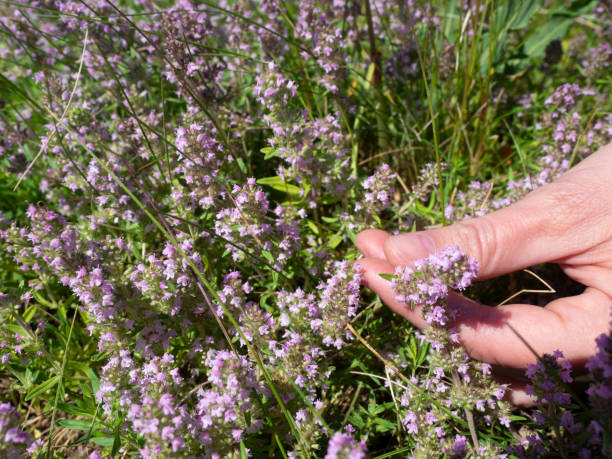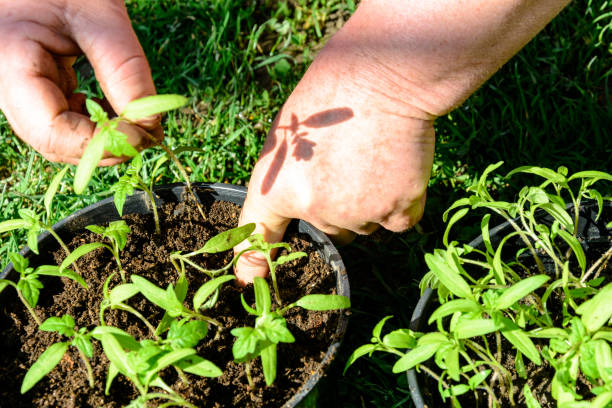Climate change is a reality that should inspire gardeners to reduce their carbon footprints and adapt. As climate change intensifies, earlier springs, hotter summers, and extreme weather events become the norm, making sustainable gardening more critical. David Wolfe, soil and plant ecologist, is my guest for this week. He will share with you how gardeners can make their gardens more resilient while positively affecting the environment.
Climate change is a reality that should inspire gardeners to reduce their carbon footprints and adapt. As climate change intensifies, earlier springs and warmer summers are becoming more common. Droughts and extreme weather conditions will also become more frequent. Sustainable gardening is, therefore, important now more than ever. David Wolfe, soil and plant ecologist, is my guest for this week. He will share with you how gardeners can make their gardens more resilient while positively affecting the environment.
Joe Lamp’l 284, Gardening Sustainable in a Changing Climate
David will retire in 2021 after 30 years of teaching at Cornell College of Agriculture and Life Sciences School of Integrative Plant Science in Ithaca. He may be busier now than ever. He is the chair of the Cayuga Lake Watershed Network Board of Directors and a member of the Conservation Advisory Council for the Town of Lansing (New York). He has spent his career and post-career focusing on climate change mitigation and adaptation strategies for managed and native ecosystems, soil health and water resource management, and soil carbon assessments. He is also the author of “Stories From The Underground: a Natural History of Subterranean Life,” a book from 2001 that continues to resonate today.
David has a Ph.D. in plant and soil ecology from the University of California Davis. He studied plants’ physiological response to stress and elevated carbon dioxide acclimation levels.
He has worked to show how soil health and water can be improved. This includes leading a $4,7 million National Institute of Food and Agriculture (NIFA) project to identify new methods for managing agroecosystems’ carbon, nitrogen, and greenhouse gases. From 2017 to 2021, he served as co-project manager for the New York Soil Health Program, funded by the state. His work in the field has taken him to East Africa, where he worked on soil conservation and food security projects.
He says, “I remember the first ecology class I took.” The professor told me that people asked, “What is ecology?” “I told them that it everything is interesting.” David took this to heart.
It’s called “The Vegetable Gardening Book: Your complete guide to Growing an edible organic garden from Seed to harvest” and can be found online and at local bookstores. You can find it online or in local bookstores. It is called “Vegetable gardening book: your complete guide to Growing an edible organic garden from Seeds to Harvest.” This book is full of new information and insider tips to help you improve your gardening skills and overcome challenges.
Organic Vegetable Gardening, my new Online Gardening Academy (TM) Premium Course, is scheduled for release in 2023. Register for the waitlist.
David Wolfe was alerted to the impact of climate change on plants by David Wolfe.
David joined Cornell’s faculty in 1984. He says he only spent a few short years there when he saw the data about the rapid increase of carbon dioxide in our atmosphere. Mauna Loa records.
He said that the impacts of climate change were not widely evident in those days. He added that the data from the weather gave clues to the fact that things were beginning to heat up. He knew the direct effects of carbon dioxide on plants and their stress response. David and other scientists conducted experiments to see how plants would react to stressors in the future when CO2 levels were expected to be higher.
He recalls that the first national and regional climate assessment was made during the Bill Clinton presidency. “There was a Northeastern Group that was going look at what was happening in the Northeast, particularly climate change. I was one of only a handful of scientists at the time who were focusing on the possible impacts on agriculture and the natural resources in that region.
It wasn’t immediately apparent how his work on climate policies and water resources, and soil management intertwined, but it was.
David says that for a long time, people thought he was either the soil guy or the climate change guy because he spoke to different groups about the two things. But now, people are starting to see the connection between the two because our soils sequester carbon.
David wrote a book called “Tales From The Underground” about the incredible discoveries in soil biology at that time. “I realized the public, especially farmers and gardeners, were unaware of this,” says David.
He says it’s not just the pathogens in the soil that kill plants but also the “good guys” within the earth.
The book is a classic and has been published in multiple languages. A new, updated Spanish edition was released recently. He said he was worried that the book would become “outdated” and lose its appeal after a few years, but this wasn’t true. He says, “I’ve reread it, which is still very relevant.” “I added some new, modern references in my recently updated version.”
He explains that the chapters are like tours through cool underground things, and he shares stories about living organisms and fascinating scientists who studied them. It’s like saying: “Take my hand.” He says, “I will show you this awesome habitat.”



